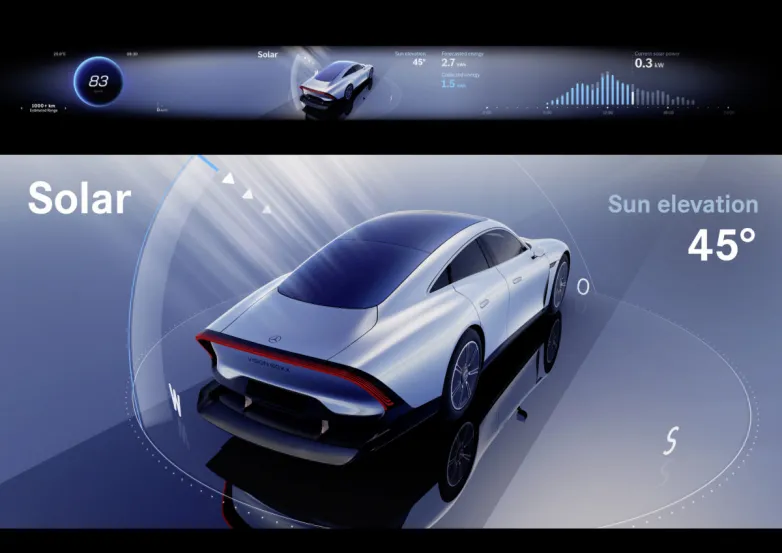Mercedes' newest electrical car features thin-film solar cells on the roofing
- The solar roof covering was created in cooperation with the Fraunhofer Institute for Solar Energy Systems.

Germany-based car maker Mercedes-Benz has provided this week the Vision EQXX, the most recent model of its electrical car fleet.
According to the business, the vehicle is the most effective electric car it has actually ever developed, thanks to impressive power intake of less than 10kWh per 100km and also a series of greater than 1,000 kilometres.
The car features a newly developed in-house system that is asserted to accomplish a benchmark efficiency of 95%, from battery to wheels. "The battery pack in the Vision EQXX holds virtually 100kWh of power, yet has 50% less quantity as well as is 30% lighter than the ... benchmark cram in [the] EQS," the supplier specified, referring to one of its best known electric vehicles.
Beginning with 2024, all the vehicles in the series will certainly be equipped with 117 solar cells positioned on the roofing.
" It was developed in cooperation with the Fraunhofer Institute for Solar Energy Systems ISE-- Europe's biggest solar energy research institute," Mercedes-Benz stated in a statement. "The web result of reducing the energy drainpipe on the high-voltage system is an increase in variety. On a solitary day, and under suitable problems, this can add up to 25km of range on long-distance trips."
The power produced by the solar cells is kept in a lightweight lithium-iron-phosphate battery which supplies a climate blower, the lights, the infomercial system and also various other ancillaries. "Mercedes-Benz and its partners are working towards using solar power to charge the high-voltage system, too," the maker additionally described.
In a current meeting with pv magazine, Bonna Newman, program supervisor for PV and also wheelchair module technologies at the Netherlands Organization for Applied Scientific Research (TNO), stated that electrical cars incorporating PV modules on their bodywork or roofing system have the possible to get to greater than 10,000 kilometres each year of pure solar-powered driving and that the modules could have a repayment time of simply three to four years. According to her, the advantages of vehicle-integrated PV are proportional to the solar radiation degrees of an offered location, its demand for electrical vehicles, and also power prices.
Also read
